Jun 17, 2024
Author:Lisa Martinez
Feeding your dog homemade food has many benefits. Not only do you have full control over the ingredients, ensuring they are healthy and nutritious, but you also avoid harmful preservatives often found in commercial dog food. This blog post aims to provide a detailed recipe and guidance on making homemade dog food, helping you ensure your furry friend gets the best nutrition possible.
One of the primary advantages of homemade dog food is the nutritional benefits. You can select high-quality ingredients that are free from preservatives and additives. This allows for a balanced diet rich in essential nutrients.
Every dog is unique, and homemade dog food allows you to tailor meals to meet your dog's specific dietary needs. Whether your dog requires a grain-free diet, has allergies, or needs a higher protein intake, you can customize their meals accordingly.
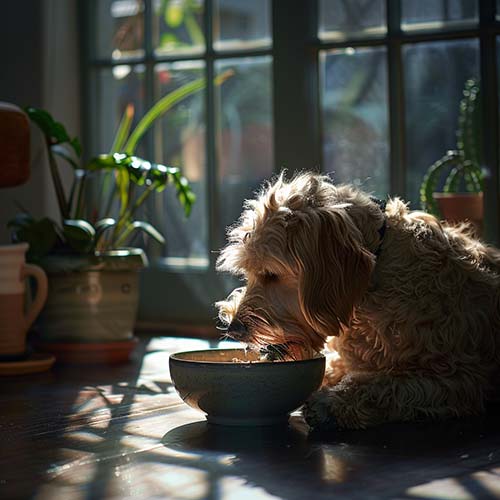
Making dog food at home can be more cost-effective than buying premium commercial dog food. By purchasing ingredients in bulk and using leftovers from your own meals, you can save money while providing high-quality food for your dog.
Preparing meals for your dog can strengthen the bond between you and your pet. The care and effort you put into making their food can deepen your connection and enhance your dog's overall well-being.
Proteins are crucial for muscle growth and overall health. Good sources of protein for dogs include chicken, beef, fish, and eggs.
Carbohydrates provide energy. Healthy sources include rice, sweet potatoes, and oats.
Healthy fats are essential for a shiny coat and healthy skin. Incorporate fish oil, flaxseed, and chicken fat into your dog's diet.
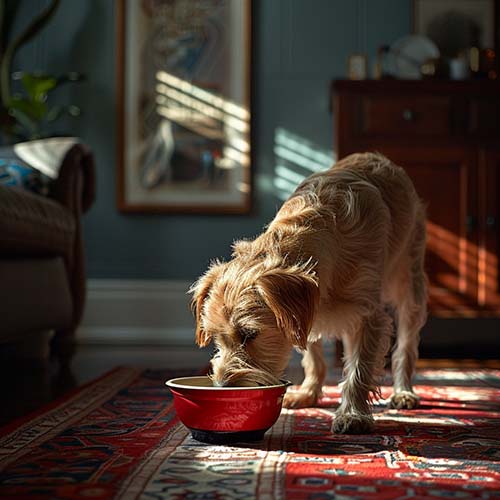
Vegetables and supplements are vital for your dog's overall health. Ensure a variety of veggies like carrots, spinach, and peas.
Proper hydration is essential. Always provide fresh water and ensure your homemade food has adequate moisture content.
Certain foods are harmful to dogs, including chocolate, grapes, raisins, onions, garlic, and avocados.
Be aware of potential allergens like soy, wheat, and corn. Monitor your dog for any adverse reactions.
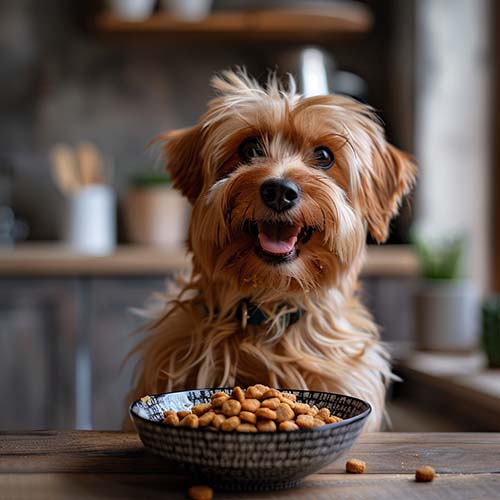
Avoid harmful preservatives and artificial ingredients. Stick to natural, whole foods for the best health benefits.
This recipe is balanced and nutritious, perfect for maintaining your dog's joint health.
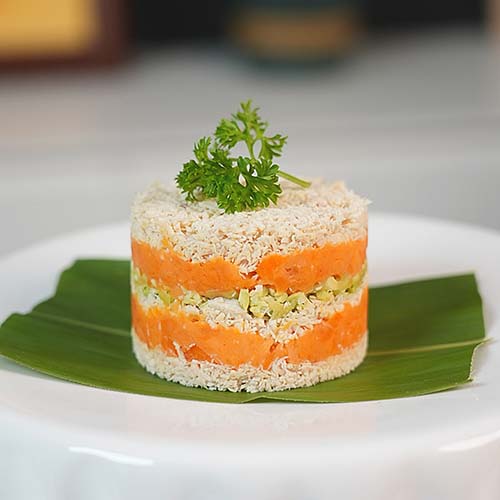
Calories: 45 kcal
Protein: 5g
Carbs: 4g
Fat: 2g
Fiber: 1.5g
1 cup cooked turkey breast (shredded, no seasoning)
1 cup sweet potatoes (peeled and chopped)
1/2 cup carrots (chopped)
1/2 cup green beans (chopped)
2 cups low-sodium chicken broth
1 tablespoon gelatin powder (unflavored, for joint health)
1 tablespoon olive oil (optional, for added omega-3 fatty acids)
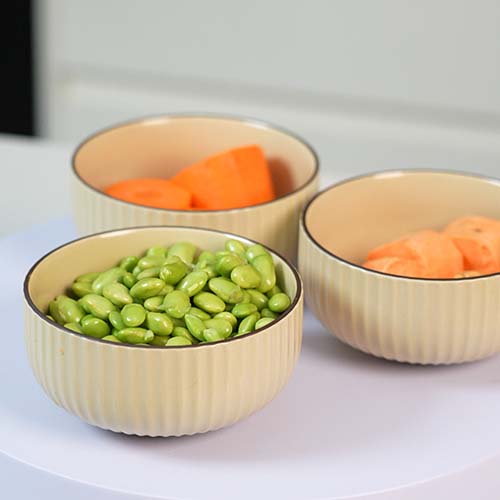
Add the sweet potatoes, carrots, and green beans. Pour in enough water to cover the vegetables and bring to a boil. Cook until the vegetables are tender, about 15 minutes. Drain and set aside.
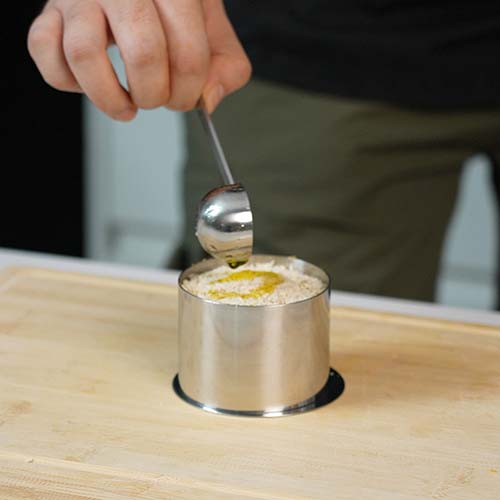
In a small bowl, add the gelatin powder to a small amount of warm water and stir until dissolved.
Combine the cooked turkey, cooked vegetables, chicken broth, dissolved gelatin, and olive oil. Stir well.
Bring the mixture to a gentle simmer over medium heat. Let it simmer for about 10 minutes, ensuring everything is well heated and the flavors meld together.
Allow the stew to cool to room temperature before serving.
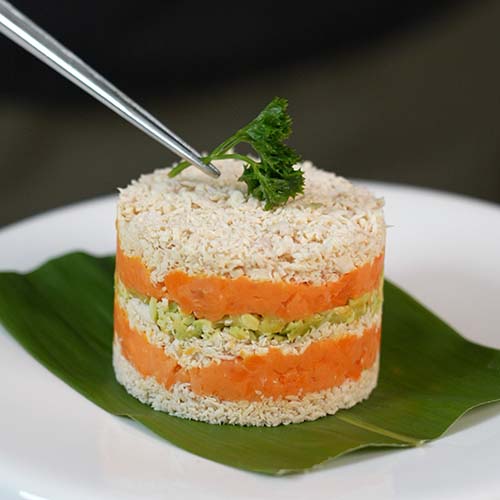
Determine the right portion size by consulting with your vet and considering your dog's weight and activity level.
And an automatic pet feeder plays a significant role in achieving this. It is an essential tool for portion control, promoting a healthier lifestyle for your pet by preventing overfeeding, maintaining a healthy weight, regulating feeding schedules, preventing food hoarding, reducing food waste, and offering customizable feeding plans.
The slow feed function of the WOpet automatic cat feeder plays a crucial role in portion control by promoting healthy eating behaviors, improving digestion, and preventing overeating, ultimately contributing to the pet's long-term health.
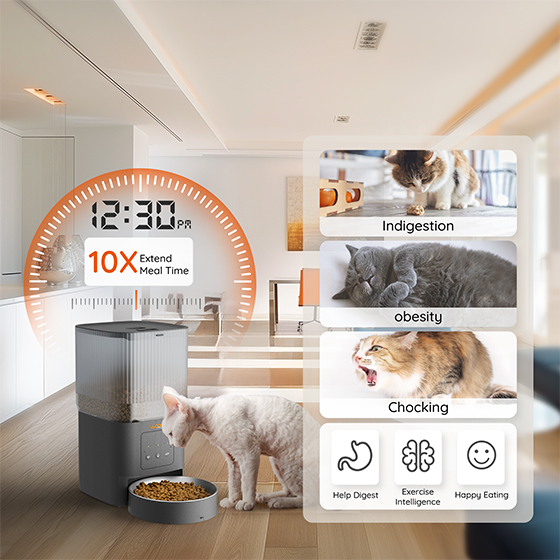
By dispensing food slowly, the feeder ensures that pets do not eat too much at once, which helps in maintaining a healthy weight and prevents obesity-related health issues.
Ensure the recipe meets all nutritional requirements. A balanced diet is crucial for your dog's health.
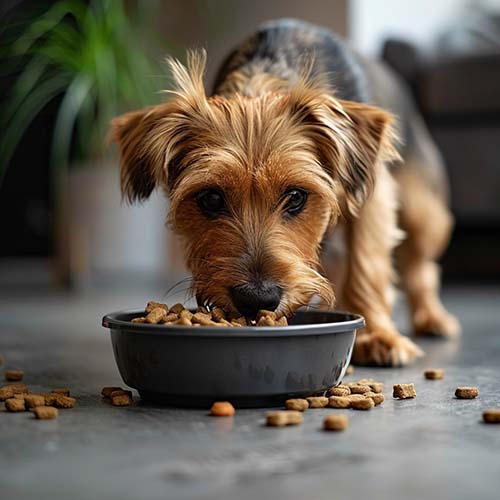
Rotate recipes to provide variety and ensure your dog gets a range of nutrients.
Always consult your vet before making significant changes to your dog's diet. They can provide guidance tailored to your dog's needs.
Avoid overfeeding by sticking to recommended portion sizes. Overfeeding can lead to obesity and other health issues.
Store homemade dog food properly to maintain freshness. Use airtight containers and label with dates.
Ensure a balanced diet and avoid nutritional deficiencies by incorporating a variety of ingredients.
Q1: Can I feed my dog homemade food every day?
Yes, you can feed your dog homemade food every day as long as it is nutritionally balanced and meets their dietary needs.
Q2: How do I know if my dog is getting enough nutrients?
Consult your vet and consider using supplements to ensure your dog is getting all necessary nutrients. Monitor their health and adjust the diet as needed.
Q3: What should I do if my dog has a food allergy?
Identify the allergen and avoid it in your homemade dog food. Consult your vet for advice on managing food allergies.
By making homemade dog food, you can ensure your dog gets the best nutrition while strengthening your bond and potentially saving money. Give it a try and share your experiences with fellow pet owners!
Popular Post

What to Feed a Sick Dog With No Appetite? [2025 Guide]
May 16, 2023
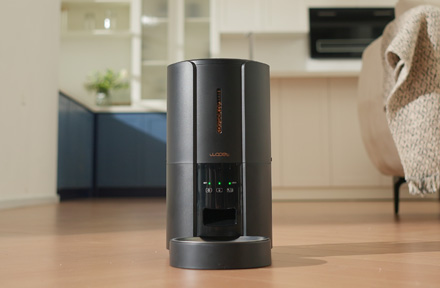
Troubleshooting Common Issues with Automatic Pet Feeders: Tips & Tricks for Pet Owners
Oct 26, 2023

Why Does My Cat Cough After Drinking Water? 8 Potential Reasons
Mar 13, 2023

Why is My Cat Throwing up Water? Top 5 Causes Here
Feb 08, 2023

My Cat Only Eats A Little at A Time - What to Do?
Feb 27, 2023
$99.99
$129.99
Copyright © 2025 WOPET. All Rights Reserved.